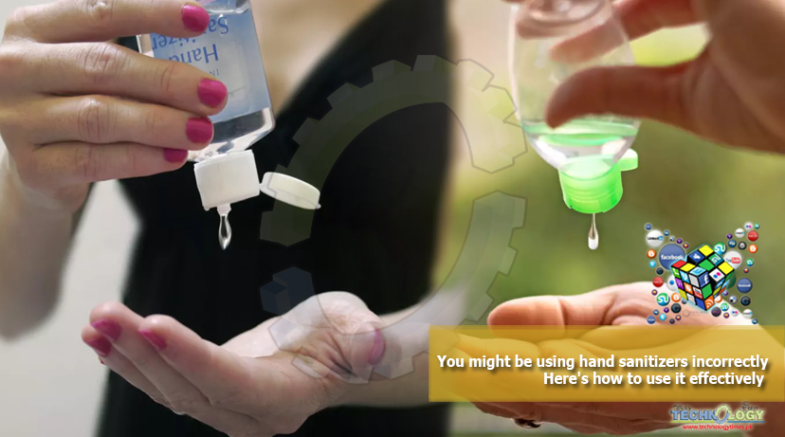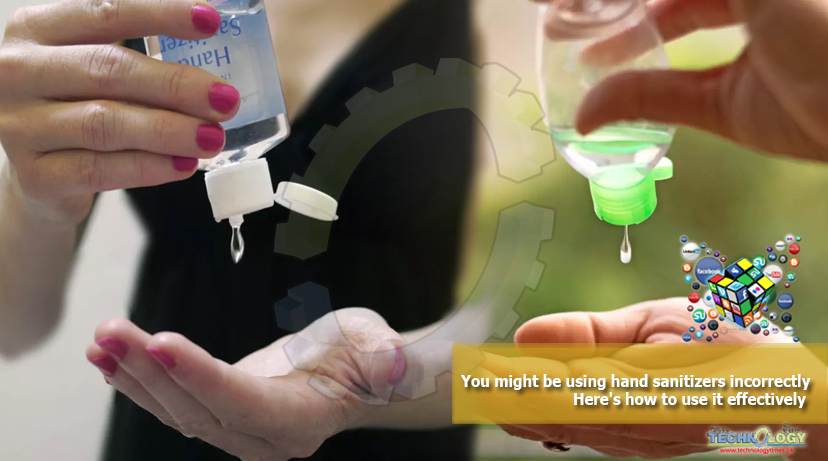Soap and water are more effective than hand sanitizers at removing certain kinds of germs, like Cryptosporidium, norovirus, and Clostridium difficile

As coronavirus cases increase exponentially in India, it is high time people should tick all the right safety boxes to prevent themselves from getting infected of covid-19. US CDC, United States federal agency for disease control and prevention, has charted how and when to correctly apply the hand sanitizers.
Soap and water over sanitizers
CDC recommends washing hands with soap and water whenever possible because handwashing reduces the amounts of all types of germs and chemicals on hands. Soap and water are more effective than hand sanitizers at removing certain kinds of germs, like Cryptosporidium, norovirus, and Clostridium difficile.
Choose a correct sanitizer
If soap and water are not available, using a hand sanitizer with at least 60% alcohol can help you avoid getting sick and spreading germs to others. Alcohol-based hand sanitizer can quickly reduce the number of microbes on hands in some situations, but sanitizers do not eliminate all types of germs.
Sanitizers with an alcohol concentration between 60–95% are more effective at killing germs.
Hand sanitizer without 60-95% alcohol 1) may not work equally well for many types of germs; and 2) merely reduce the growth of germs rather than kill them outright.
How to apply a sanitizer
When using hand sanitizer, apply the product to the palm of one hand and rub the product all over the surfaces of your hands until your hands are dry. People will have to use a large enough volume of the sanitizer and should not wipe it off before it has dried. According to CDC, sanitizers take about 30 second to kill germs and bacteria.
When hands are visibly dirty or greasy
Hand sanitizer work well in clinical settings like hospitals, where hands come into contact with germs but generally are not heavily soiled or greasy. Some data also show that hand sanitizers may work well against certain types of germs on slightly soiled hands. However, hands may become very greasy or soiled in community settings, such as after people handle food, play sports, or work in the garden. When hands are heavily soiled or greasy, hand sanitizers may not work well. Handwashing with soap and water is recommended in such circumstances.
Harmful chemicals, like pesticides
Although few studies have been conducted, hand sanitizers probably cannot remove or inactivate many types of harmful chemicals. According to CDC, study suggest that people who reported using hand sanitizer to clean hands had increased levels of pesticides in their bodies. If hands have touched harmful chemicals, wash carefully with soap and water.
Sanitizers can cause alcohol poisoning.
Ethyl alcohol (ethanol)-based hand sanitizers are safe when used as directed, but they can cause alcohol poisoning if a person swallows it.
Originally Publish at: https://www.livemint.com/
